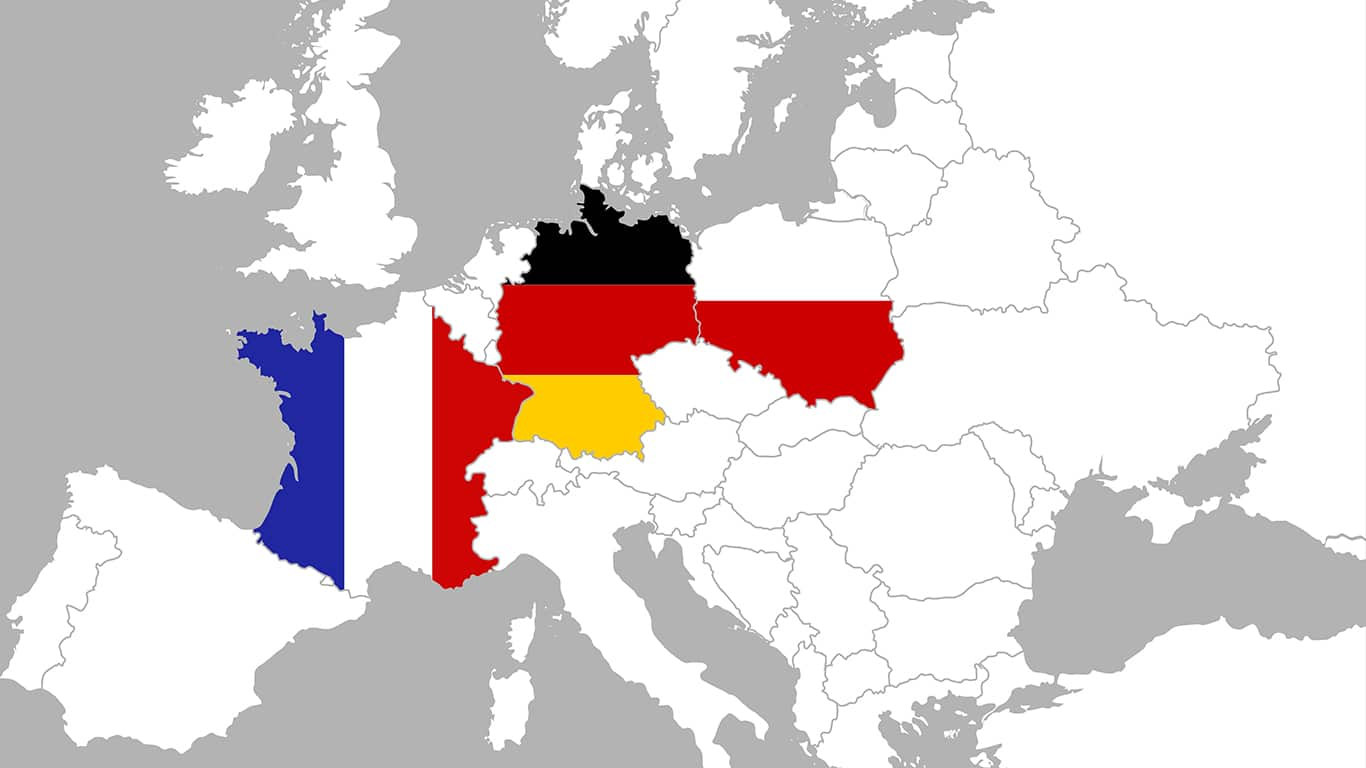Free Courses Sale ends Soon, Get It Now


Free Courses Sale ends Soon, Get It Now



Copyright infringement not intended
Picture Courtesy: https://www.globsec.org/what-we-do/publications/30-years-weimar-triangle-idea-yesterday-or-concept-tomorrow
Context: The Weimar Triangle, a cooperation platform between Poland, France, and Germany, has announced a new initiative to strengthen cooperation and address common challenges.
Details
The Origins of the Weimar Triangle
Key Areas of Cooperation
European Affairs
Security and Defense
Economic Development
Climate Change and Energy
Science and Technology
Culture and Education
Challenges of the Weimar Triangle
.jpg)
Way Forward
Must Read Articles:
India-France Bilateral Relations: https://www.iasgyan.in/daily-current-affairs/india-france-bilateral-relations-34
Poland: https://www.iasgyan.in/daily-current-affairs/poland-42
|
PRACTICE QUESTION Q. How can India and Europe bridge their differences on global issues like climate change, trade regulations, and the role of international organizations? Can they find common solutions despite their differing geopolitical priorities and economic structures? Answer Structure: ●Identify the main areas of convergence and divergence between India and Europe on global issues, such as their views on multilateralism, human rights, democracy, security, and development. ●Analyze the factors that shape their respective positions, such as their historical experiences, strategic interests, domestic politics, and regional dynamics. ●Evaluate the potential benefits and challenges of enhancing their cooperation, such as the opportunities for joint action, the trade-offs involved, and the risks of misunderstanding or conflict. ●Propose some concrete recommendations for strengthening their dialogue and partnership, such as the areas of mutual interest, the mechanisms of consultation and coordination, and the best practices for communication and trust-building. |
© 2024 iasgyan. All right reserved